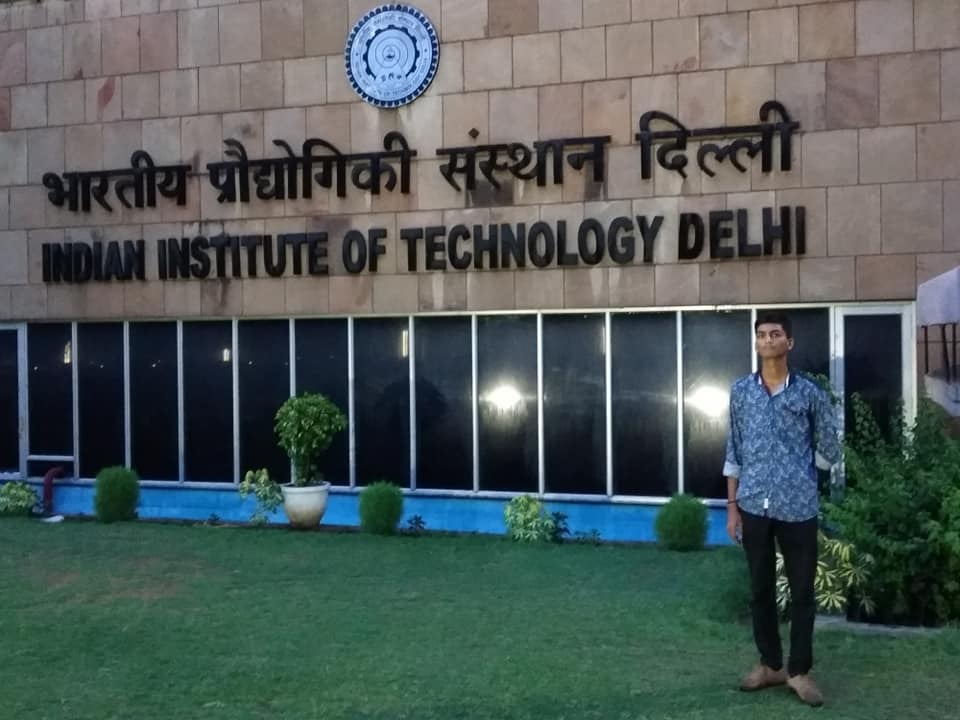IIT Delhi to partner in a £20-million-pound international collaboration to develop new approaches to tackle water security
New Delhi: Water Security for All: IIT Delhi to partner in a £20-million-pound international collaboration to develop new approaches to tackle the challenges and barriers to water security and sustainable development
Eighty per cent of the world’s population live in areas threatened by water security yet efforts to resolve this are repeatedly thwarted by pressures such as pollution, extreme weather, urbanisation, over-abstraction of groundwater and land degradation.
A major project has been launched under the aegis of Foundation for Innovation and Technology Transfer (FITT), IIT Delhi, to bring together leading global experts from academia, industry and government to understand the true value of water and address the challenge of water security for all.
The project is funded by UK Research and Innovation (UKRI) through the Global Challenges Research Fund (GCRF) – which is a key component in delivering the UK AID strategy and puts UK-led research at the heart of efforts to tackle the United Nations Sustainable Development Goals.
The new UKRI GCRF Water Security and Sustainable Development Hub is one of the 12 hubs being set up to tackle some of the greatest challenges facing today’s society.
Prof Richard Dawson, from the School of Engineering at Newcastle University and academic lead for the new Water Security and Sustainable Development Hub explained, “Access to clean water is essential for life and it is the stepping stone to sustainable development because it improves health, supports jobs, and enables food production.”
Prof AK Gosain, Department of Civil Engineering, IIT Delhi, and the lead researcher for the hub in IIT Delhi said, “The water security of India is at stake because of the ever increasing demands for water, not only for irrigation but also for industrial and domestic sector. Most of the river basins in India are found to be over exploited, which is also corroborated by the alarmingly falling groundwater tables year after year. India accounts for 25% of the total groundwater extracted by the world. The conditions are expected to further acerbate in future due the impacts of climate change on water resources. Water security in India is going to undergo enhanced threat in future. Hence, this is the most opportune time to judiciously look into the reasons why the present water stress has been created so that appropriate and sustainable solutions are obtained for the present, which should also serve as good guide to adaptation options under the future conditions.”
Dr Dhanya CT, Department of Civil Engineering, IIT Delhi and Principal Investigator of the hub in IIT Delhi explained, “The hub’s activities are focused to promote integrated and sustainable development and management of India’s water resources by using state-of-the-art technology. Suggested research shall engage in creation of a framework in collaboration with the Hub and the other Collaborators for planning, monitoring and assessment using an integrated approach. This framework shall be addressing technical, environmental and social issues as well as shall support in negotiation and community participation and finally shall support policy improvement by communicating research information to policymakers in an understandable manner. The Hub will coordinate all stakeholders.”
Starting in March, 2019, the Newcastle University led GCRF Water Security Hub will run for five years and also brings together leading research partners from India (Indian Institute of Technology Delhi, School of Planning and Architecture Delhi), Colombia (Universidad del Valle and Universidad del Cauca), Ethiopia (University of Addis Ababa), Malaysia (University Teknologi Malaysia), the UK (University of Leeds, University of Oxford), and the International Water Management Institute.
Prof Dawson added, “The enormity of the problem means we can only solve it if we work together, by bringing researchers together with local communities, local and national governments, water providers, business and industry and global organizations.”

